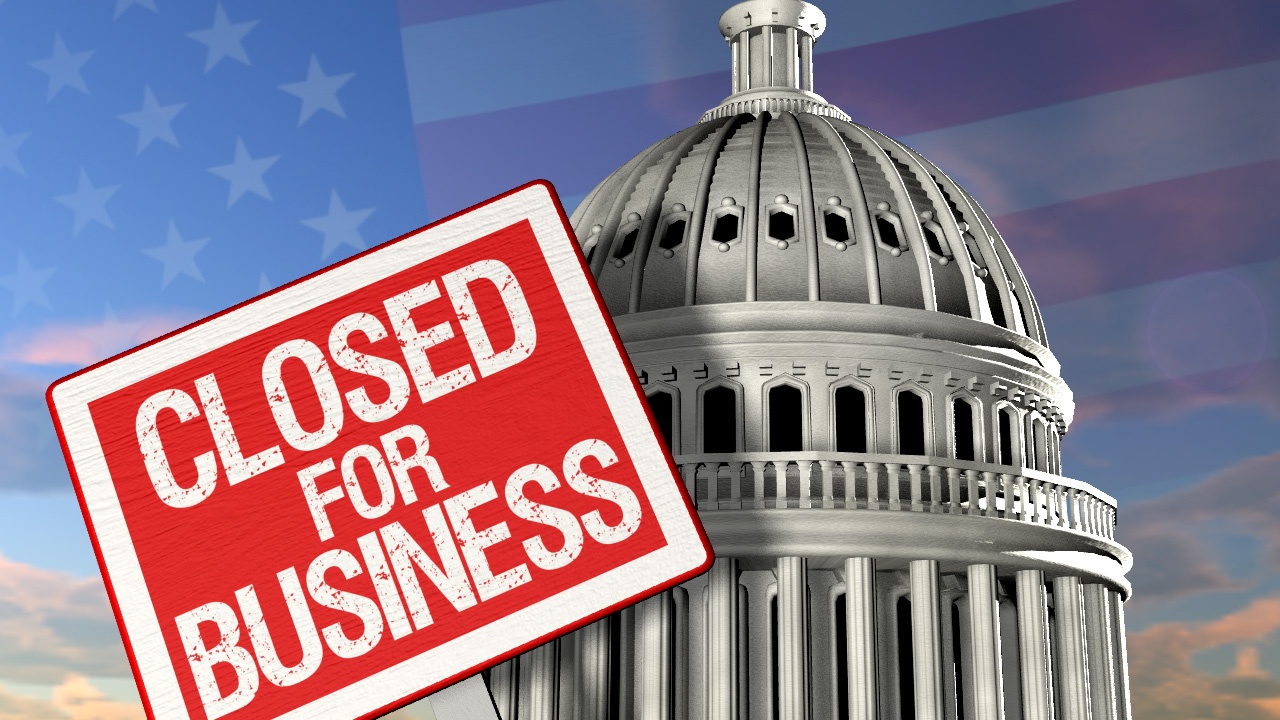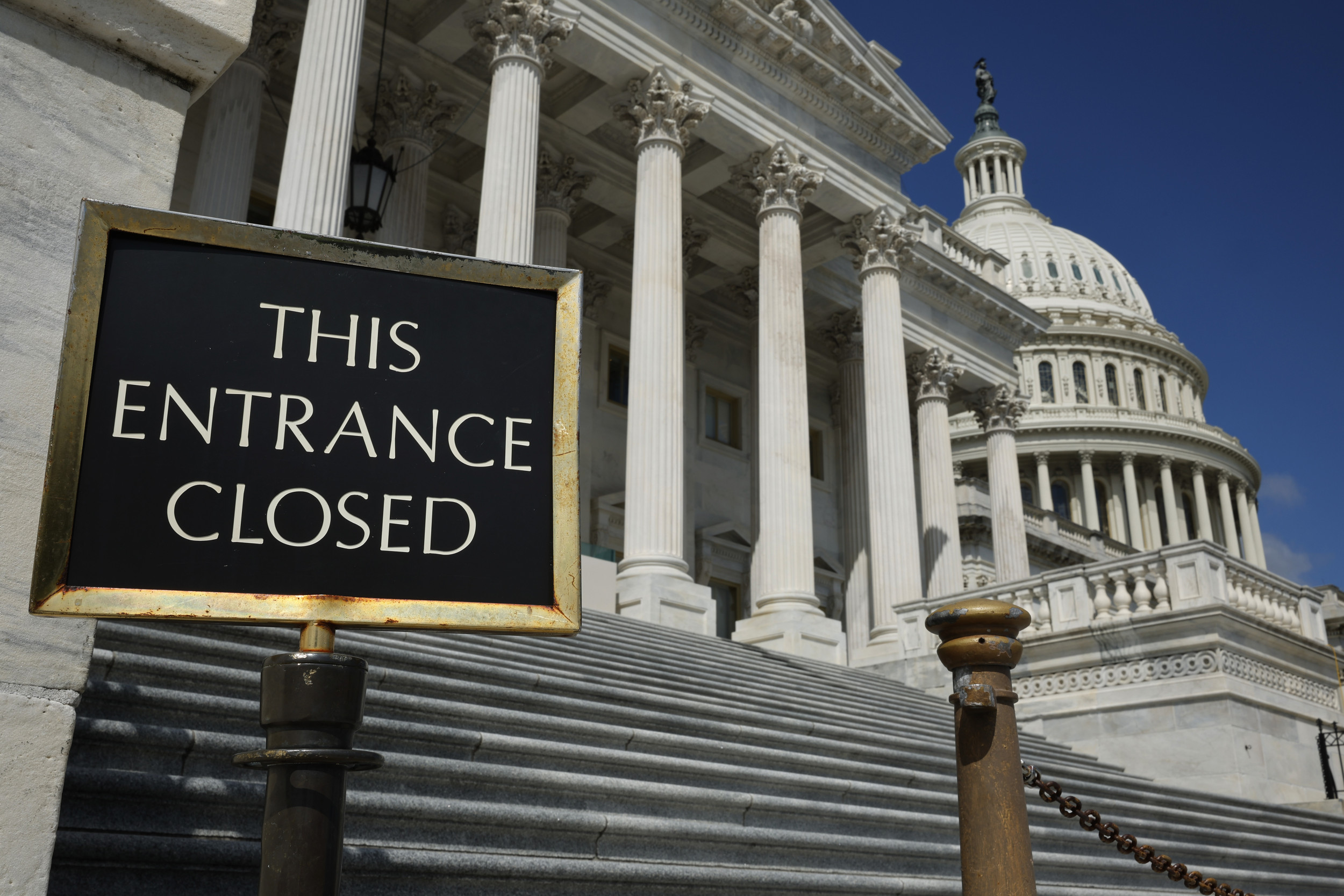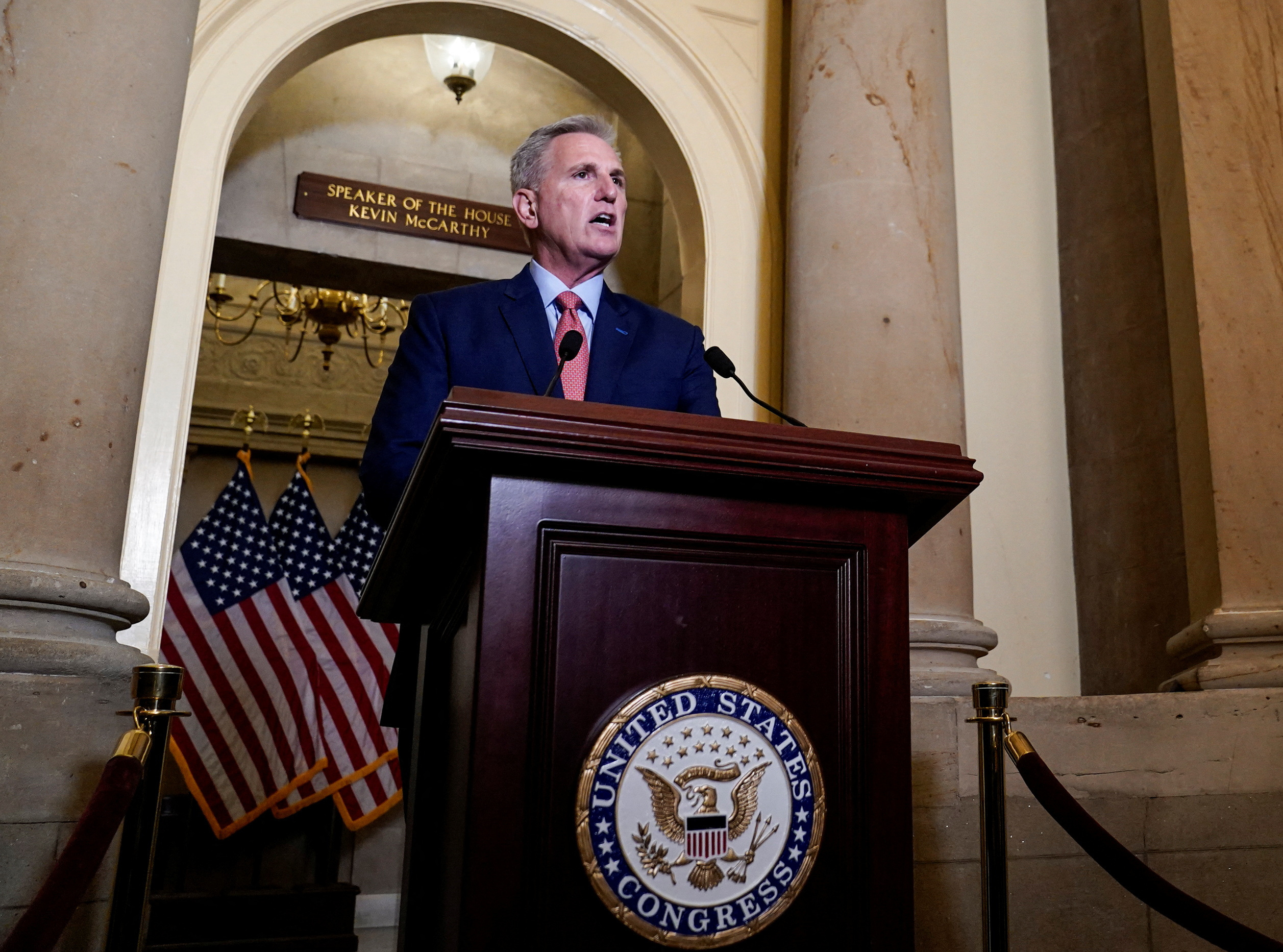U.S. government shutdown may be averted after House passes a crucial spending bill. This near-miss highlights the intense political battles surrounding government funding and the potential consequences of inaction. We’ll explore the House vote breakdown, Senate response, economic impacts, public opinion, historical context, and potential future legislation to understand this critical moment in American politics.
The House vote was a nail-biter, revealing deep partisan divisions yet also some surprising bipartisan cooperation. The Senate now faces the challenge of navigating its own complexities before a potential shutdown deadline. Understanding the economic consequences, both positive and negative, of this bill is key, as is considering the long-term implications for legislative processes and public trust.
House Vote on Spending Bill: A Narrow Escape from Shutdown: U.S. Government Shutdown May Be Averted After House Passes

The House of Representatives narrowly avoided a government shutdown by passing a short-term spending bill. This action, however, doesn’t guarantee a smooth path forward, as the bill now faces scrutiny and potential alterations in the Senate. The vote highlights deep partisan divisions and the precarious balance of power in Congress.
House Vote Breakdown
The House vote revealed significant party-line divisions, with most Republicans opposing the bill and most Democrats voting in favor. A few Republicans crossed party lines, likely influenced by concerns about a shutdown’s impact on their constituents. Conversely, some Democrats may have voted against the bill due to specific provisions or concerns about future budget negotiations. The arguments for and against the bill were sharply defined.
| Argument | Proponent (Democrat) | Opponent (Republican) |
|---|---|---|
| Government Funding | Preventing a government shutdown is crucial to maintain essential services and avoid economic disruption. | The bill’s spending levels are excessive and unsustainable, leading to future debt and inflation. |
| Specific Programs | The bill invests in vital programs that benefit communities, such as infrastructure and social services. | The bill includes wasteful spending on pet projects and lacks fiscal responsibility. |
| Long-Term Budget | This short-term measure buys time for more comprehensive budget negotiations. | This is a short-sighted approach that avoids addressing the underlying issues in long-term budget planning. |
| Political Maneuvering | The bill represents a necessary compromise to avoid the damaging effects of a shutdown. | The bill is a political ploy that favors the Democrats and doesn’t address Republican priorities. |
The votes cast by individual representatives will have a significant impact on their constituents. Those who voted against the bill might face criticism for potentially jeopardizing essential services. Conversely, those who supported the bill could be lauded for avoiding a shutdown, although they may also face criticism for specific provisions within the bill.
Senate’s Response and Potential Actions
The Senate’s response to the House-passed bill is uncertain. Several scenarios are possible, ranging from swift passage to significant delays or amendments. Senate Republicans could attempt to significantly alter the bill, potentially leading to a stalemate. Conversely, some Republicans might prioritize avoiding a shutdown, leading to negotiations and compromises.
Potential scenarios include: swift passage with minimal changes; significant amendments proposed by Senate Republicans, potentially leading to negotiations; a filibuster attempt by Republicans to delay or block the bill; a bipartisan compromise emerging from negotiations; or a failure to pass the bill before the deadline, resulting in a government shutdown. The political maneuvering will likely involve intense negotiations between party leaders and individual senators to secure the necessary votes.
Economic Implications of the Bill
The bill’s economic provisions, while likely short-term in nature, will impact the U.S. economy. A comparison of passing the bill versus a government shutdown is crucial.
| Scenario | Short-Term Effects | Long-Term Effects |
|---|---|---|
| Bill Passes | Continued government operations; minimal economic disruption; potential for some positive economic effects depending on the specific provisions. | Continued government services; potential for long-term economic growth depending on the spending provisions. |
| Government Shutdown | Significant economic disruption; loss of government services; negative impact on consumer and business confidence; potential increase in unemployment. | Reduced economic growth; increased national debt; erosion of public trust in government; potential for long-term damage to the economy. |
Short-term consequences of either scenario could include fluctuations in the stock market and consumer confidence. Long-term effects might involve changes in government programs, altered economic growth trajectories, and shifts in public perception of the government’s effectiveness.
Public Opinion and Media Coverage
Public opinion regarding the government shutdown threat and the spending bill is divided, mirroring the partisan divisions in Congress. Media coverage has played a significant role in shaping public perception, often reflecting the biases and perspectives of individual news outlets.
- Some media outlets framed the bill as necessary to avoid a harmful shutdown.
- Others highlighted concerns about the bill’s spending levels and potential negative economic consequences.
- Certain outlets focused on the political maneuvering and partisan divisions driving the debate.
- Social media amplified various perspectives, with users expressing strong opinions on both sides of the issue.
A hypothetical social media campaign supporting the bill might use positive messaging focusing on preventing a shutdown and highlighting the bill’s benefits. The target audience would be undecided voters and those concerned about government services. Conversely, an opposing campaign might emphasize the bill’s potential negative economic consequences and target fiscally conservative voters.
Historical Context of Government Shutdowns, U.S. government shutdown may be averted after House passes

The current situation shares similarities with past government shutdowns, particularly in the partisan gridlock that led to the impasse. Several factors commonly contribute to shutdowns.
So, the US government shutdown might be avoided after the House passed that bill – a bit of good news amidst the chaos! It’s a stark contrast to the heartwarming reunion of music legends; check out this awesome pic of Paul McCartney reunites with Ringo Starr during London tour stop. Anyway, back to the shutdown – hopefully, this means smoother sailing ahead for the country.
- Deep partisan divisions and political polarization.
- Failure to reach bipartisan consensus on budget priorities.
- Use of government funding as a leverage point in political negotiations.
- Lack of effective communication and compromise between legislative branches.
Past shutdowns have often resulted in reduced public trust in government and hampered the effectiveness of policymaking. The lasting impacts can include increased cynicism about politics, reduced government efficiency, and damage to the nation’s reputation.
Potential Future Legislation

The outcome of this bill will significantly impact future budget negotiations and legislative processes. The next budget cycle could see renewed efforts to address long-term spending issues. However, continued partisan gridlock remains a significant risk.
A hypothetical scenario for the next budget cycle might involve intense negotiations over spending levels for defense, social programs, and infrastructure. Areas of conflict could include disagreements over tax cuts, spending caps, and the overall size and scope of the federal government. Potential compromises might involve targeted spending increases in certain areas while making cuts elsewhere.
Potential changes to legislative procedures to prevent future shutdowns might include reforms to the budget process, increased bipartisan cooperation, and greater transparency in negotiations.
The passage of this spending bill in the House offers a temporary reprieve from the looming threat of a government shutdown, but the battle is far from over. The Senate’s actions, the economic ramifications, and public perception will all play crucial roles in shaping the future of government funding and the political landscape. The coming weeks will be critical in determining whether this narrow escape marks a turning point or simply a temporary pause in the ongoing struggle over budgetary priorities.
So, the US government might dodge a shutdown, that’s good news! It looks like the House just passed something crucial, check out this article for the details: U.S. government shutdown may be averted after House passes. This development is pretty significant for avoiding a potential government shutdown, which would be a huge mess.
Key Questions Answered
What happens if the Senate doesn’t pass the bill?
A government shutdown would occur, leading to the temporary closure of non-essential government services.
What are the potential long-term effects of repeated government shutdowns?
Erosion of public trust in government, damage to the economy, and difficulties in enacting effective policy.
How does a government shutdown impact everyday citizens?
Delayed services like passport processing, national park closures, and potential disruptions to various government programs.
What role did lobbying groups play in this bill’s passage?
Various interest groups likely exerted influence on both sides of the debate, advocating for their respective priorities.